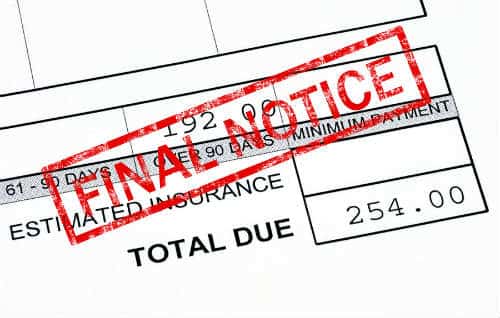If you’re dealing with a collection agency that’s demanding more than you can realistically pay, you’re not alone—and you have options. Whether the collector is asking for a lump sum or a payment plan that’s beyond your reach, it’s important to approach the situation strategically. This guide walks you through how to negotiate effectively, protect your credit, and manage legal threats, even if your finances are stretched thin.
Why Collection Agencies Are Willing to Negotiate
Ironically, being behind on payments puts you in a stronger position to negotiate. Collection agencies want one thing: money. And you have the one thing they want—cash, even if it’s less than the full amount owed. With the right approach, you may be able to settle your debt for less and limit the damage to your credit.
Step 1: Ask the Collection Agency for a Settlement or Payment Plan
Your options depend on your account’s status (open, charged off, etc.). You can request:
-
A reduced settlement (e.g., offering $1,000 on a $3,000 balance)
-
A monthly payment plan within your means
-
A restoration to current status if you’re only slightly behind
Insist on documentation. Get every agreement in writing, and request confirmation that they will either:
-
Delete the negative mark from your credit report (known as a “pay for delete”), or
-
At the very least, mark the debt as “Paid in Full” or “Settled.”
Step 2: Avoid These Mistakes
❌ Never Send Post-Dated Checks
Providing access to your bank account puts you at serious risk. Instead:
-
Pay by money order or certified check
-
Only send payment after receiving a signed agreement
❌ Don’t Agree Without a Signed Deal
If you verbally agree to a payment plan or settlement, but don’t get it in writing, you’re vulnerable. They could:
-
Demand the full amount later
-
Restart the statute of limitations
-
Continue reporting negative marks to credit bureaus
Step 3: What If They Threaten Legal Action?
If a collector files a lawsuit, you’ll receive a summons and complaint. Don’t ignore it—responding gives you leverage.
What Happens If You Don’t Respond?
-
The court may issue a default judgment against you
-
They could garnish your wages, freeze bank accounts, or place a lien on your property
Why Answering Helps You Negotiate
When you answer the complaint:
-
You buy time to negotiate or settle
-
You preserve your rights to dispute the claim
-
Collectors often realize it’s not worth the cost of going to court and may become more flexible
Even if you do owe the debt, appearing in court and offering a reasonable payment plan can lead to better outcomes.
Step 4: Can’t Afford to Pay? You Still Have Options
Being broke isn’t a legal excuse—but it does influence how aggressive the creditor will be.
The Court May Require a Financial Statement
This document helps prove:
-
Your lack of assets
-
Limited or no income
-
No bank accounts or property to seize
In such cases, creditors are more likely to accept a low monthly payment or a lump-sum settlement to close the file.
Step 5: Know the Statute of Limitations
Why It Matters:
Every state has a legal time limit—called the statute of limitations—on how long a creditor can sue you. This varies:
-
Typically 3 to 10 years
-
Based on your state or the creditor’s state (whichever is longer)
Important: This legal deadline differs from the credit reporting time frame. Negative marks may stay on your credit report for up to 7 years, even if the statute of limitations has expired.
To check your state’s statute of limitations, visit www.naag.org or contact your state attorney general.
Step 6: Be Cautious with Payment Plans
If you do agree to a payment plan:
-
Don’t miss payments—this can restart the clock on the debt
-
Only commit to what you can truly afford
Tip: If the account is charged off, you might offer 25%–40% of the balance as a lump sum. Just ensure you get written confirmation that the debt will be considered settled and that no further collection will occur.
Final Thoughts
Dealing with a collection agency can be stressful—but understanding your rights and acting strategically puts you in control. Whether you’re negotiating a reduced payoff or responding to a court summons, every action you take can protect your finances and credit in the long run.
FAQs:
What should I do if I can’t afford the amount a collection agency demands?
Offer a smaller lump sum or monthly payment plan and get the agreement in writing before sending any money.
Can a debt collector garnish my wages without a court order?
No. They must first sue you and win a judgment in court.
What if the statute of limitations has expired?
You may no longer be legally obligated to pay the debt, but the collector can still attempt to collect unless you assert the statute of limitations as a defense.
Is it worth settling with a collection agency?
Yes, if you can afford to offer a lump sum or negotiate a favorable plan. It can help clear your credit report and avoid legal action.
Should I pay or wait until the debt falls off my credit report?
If the debt is small, close to falling off, or past the statute of limitations, you may choose to wait. But if legal action is threatened, you may need to act.










